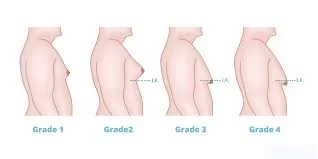
Men with gynaecomastia, a condition characterized by enlarged breast tissue not caused by excess weight, may face a higher risk of early death before the age of 75, according to a groundbreaking study published in the open-access journal BMJ Open. The research, the first of its kind, reveals that individuals with pre-existing risk factors, such as cancer or circulatory, lung, and gut diseases, are particularly vulnerable.
Gynaecomastia, which affects around one-third to two-thirds of men, is distinct from pseudogynecomastia, often associated with overweight or obesity. The condition is usually caused by a hormone imbalance and can occur at any age, with three distinct peaks linked to changes in sex hormone levels during the neonatal period, puberty, and older ages.
The study draws on data from Danish national health and population registries, covering 23,429 men diagnosed with gynaecomastia between January 1995 and June 2021. The researchers compared this group with 117,145 randomly selected men without the condition. The results indicate a 37% higher risk of early death among those with gynaecomastia than those without the condition.
When further categorized into idiopathic gynaecomastia (unknown cause) and gynaecomastia with a known pre-existing condition, the latter group faced a 75% higher risk of early death. Pre-existing cancers and circulatory, lung, and gut diseases were associated with the greatest risks.
However, the study is observational, and causation cannot be established. The researchers suggest that gynaecomastia is closely connected to later health risks, possibly exacerbated by drugs used for treatment. The findings emphasize the importance of thorough clinical examination to identify underlying risk factors in males diagnosed with gynaecomastia.
Published on January 17, 2024, in BMJ Open.











